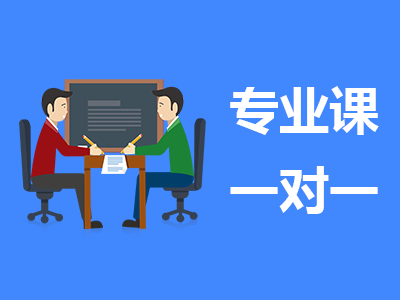单靠研读历年真题阅读理解文章是远远不够的,各考研生还应涉猎其他英语报刊,一是获取时效新闻,二是增加词汇量,提高阅读理解能力。小编整理了一些阅读理解文章分享给各2015考研生,希望大家能从中获取知识。
Five days before the opening move of Kasparov vs. the World, the chess champion sat in a fashionable Manhattan restaurant fighting off symptoms of a nasty head cold. Hunched over a cup of hot lemon juice and pinching his throat in pain, Garry Kasparov didn't look quite ready to rumble with the rest of the human race. Was this the world team's last, best hope at victory? Don't count on it. "There will," Kasparov says firmly, "be no mistakes in this game."
You'd better believe it. The tournament, which kicks off this Monday, pits the greatest living chess player in a single match against all comers on the Internet. Anybody who logs on (at www.zone.com) can vote on a variety of moves suggested by a panel of young grand masters. The most popular move is made; 24 hrs. later, Kasparov responds. And a few sniffles aren't likely to prevent the mighty Russian from beating amateur pawn pushers like you or me into a bloody pulp. "I don't expect us to win or anything," says Irina Krush, the 15-year-old U.S. women's chess champ and world-team coach, "but it'll be a fun game."
And a closely watched one too. Quite apart from being a timely test of war by committee (take note, NATO), it's Kasparov's first public confrontation with computer technology since his match with IBM's Deep Blue in 1997. Those games, billed as a historic confrontation between man and machine, ended with man's humiliating defeat (and petulant calls by Kasparov for IBM to hand over Deep Blue's printouts; two years later, they still refuse).
This time, however, man and machine will work in harmony--on both sides. Kasparov and many of his opponents will be consulting vast databases of past games and plotting computer-assisted strategies, a practice as common in chess now as using calculators to do long division. What's new here is the vast scale. In the long run, Kasparov vs. the World may tell us more about chess and human thought processes than Deep Blue ever could. "The result is irrelevant," says Kasparov, himself a part-time computer scientist and Internet addict. "It's a big experiment."
Indeed, you could say Kasparov is experimenting on us. The idea of playing a match in cyberspace was his, and the grand master has carefully controlled the setup from start to finish. He chose the game's host--Microsoft--for its software and marketing muscle. He insisted on up-and-coming chess prodigies to lead the world team--rather than more famous rivals like Anatoly Karpov or Nigel Short--so it wouldn't become a grudge match. And he set the 24-hr. gap between moves to ensure an antiseptic game, with none of the silly blunders you get in speed chess.
All well and good. But isn't there any way we lab rats can beat the chess scientist? Grand master Daniel King, who will do the commentary, thinks the sluggish time frame could actually work in our favor. Kasparov, he says, "thrives on pressure situations" and may play less aggressive chess at a leisurely pace. Let's hope so. Otherwise, we'll have to start rooting for the head cold.
注(1):本文选自Time; 06/28/99, p55, 2/3p, 2c;
注(2):本文习题命题模仿对象2004年真题Text1;
1. What is Kasparov’s attitude toward this match?
[A]Reserved.
[B]Proud.
[C]Confident.
[D]Indifferent
2. Which of the following is not the description of this match?
[A]It is a confrontation between man and computer.
[B]It is a match between one and the rest of the world.
[C]The vast scale makes this match different from the former ones.
[D]This match involves long match hours.
3. The expression “beating amateur pawn pushers like you or me into a bloody pulp”(Line
4, Paragraph 1) indicates that _____________.
[A]the amateurs have no intention to defeat Kasparov
[B]the amateurs have great confidence in themselves
[C]the amateurs can become mighty competitors
[D]the common participants can be easily defeated
4. What is the author’s attitude toward Kasparov?
[A]Apprehensive.
[B]Respectful.
[C]Contemptible.
[D]Indifferent.
5. What is Kasparov’s weak point in this game?
[A]He has got a bad cold.
[B]He has too many rivals.
[C]Less pressure makes him inactive.
[D]The match hours are too long.
答案:CADBC
篇章剖析
本文主要介绍了国际象棋冠军卡斯帕罗夫同世界上所有的人在网上进行的一次公开对抗赛。第一段指出卡斯帕罗夫同“世界队”开赛前的身体和精神状况;第二段指出比赛如何进行;第三段指出这次比赛的性质;第四段指出这次比赛的意义;第五段指出这次比赛的具体操作;第六段指出此次比赛对卡斯帕罗夫的不利方面。
词汇注释
take on 同(对手)较量,对付
champ n.=champion 冠军
fight off v.击退, 排斥, 竭力避免
symptom n.[医][植]症状, 征兆
head cold n.伤风
hunch vi.向前移动, 隆起
pinch vt.掐, 夹痛, 修剪, 勒索, 使感缺乏, 使萎缩, 偷
rumble v.隆隆声, 辘辘行驶, 低沉地说;(主美)打群架
tournament n.比赛, 锦标赛, 联赛
kick off v.踢脱(鞋等);开球,开始比赛
pit vt.窖藏, 使凹下, 去...之核, 使留疤痕, 使竞争
log on 登录
Grand Master n.(社会团体的)会长,主席, 高段棋手之尊号, 在任何方面有特殊成就者
sniffle n.抽鼻子;感冒,一种伴有鼻塞的状态,例如伤风,与 the一起使用
amateur n.业余爱好者, 业余艺术家
pawn n.典当, 抵押物, 人质, (象棋)兵、卒, 爪牙, 被人利用的人
pulp n.(水果的)果肉, 纸浆;beat (sb.) to a pulp 把某人打得遍体鳞伤, 打个半死
建议各考研生要留意一些时效性英语文章,很可能它就会成为考研阅读理解的题目。另外,各位考研生要通过做题总结答题技巧,这才达到做题的真正意义。希望通过暑期备考,各考研生复习效果都大步提升。


























